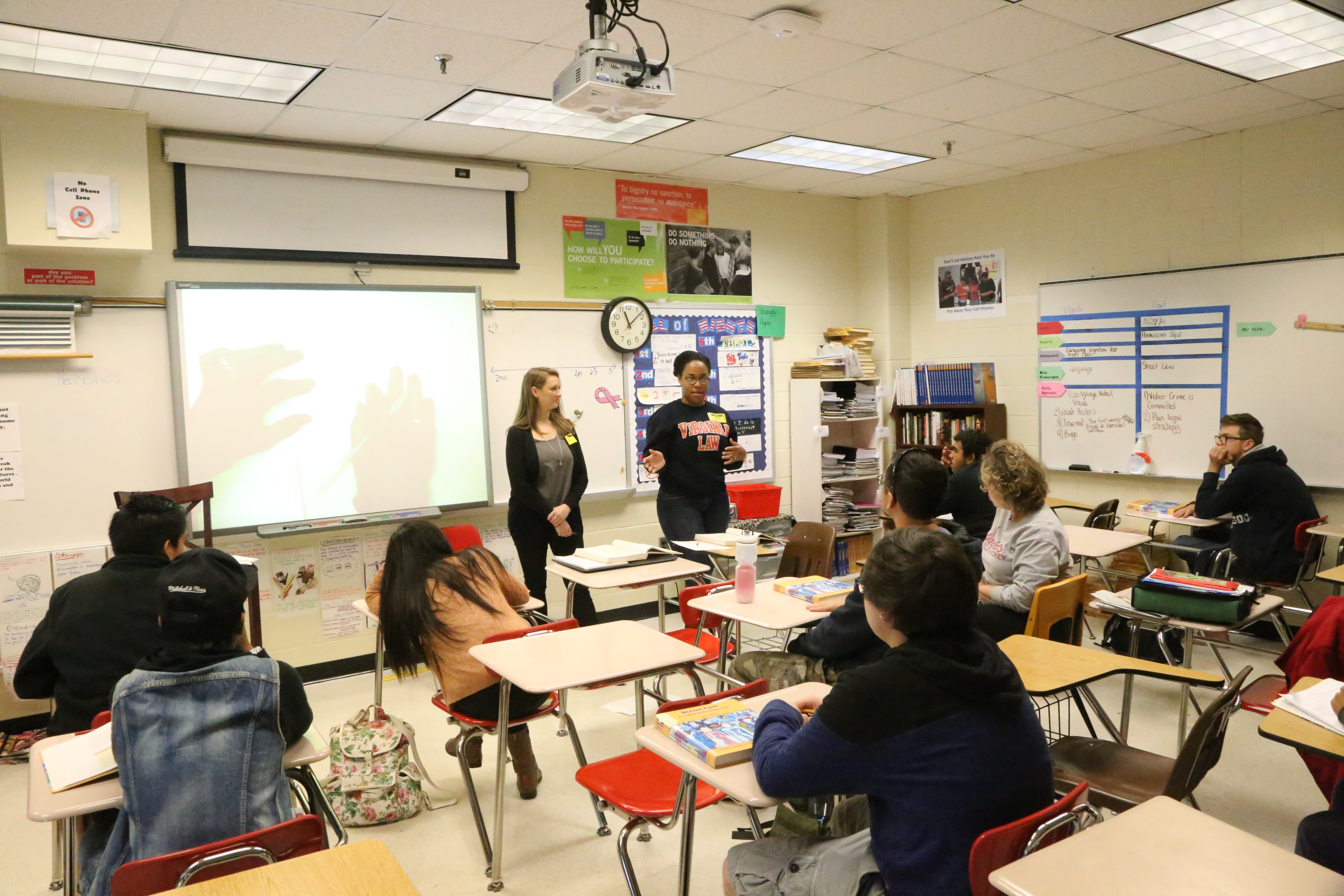“What does it mean to have reasonable doubt?”
It’s not a typical day at Albemarle High School. University of Virginia School of Law students Arianna Lacerte and Jessica Douglas are leading a class on the phases of a criminal trial. The first-year law students are members of Street Law, an organization aimed at teaching local high school seniors about their rights and stimulating their interest in law. Each year about 50 U.Va. law students participate in the program, teaching lessons at Monticello, Charlottesville and Albemarle high schools throughout the school year.
The arrangement of lecture, discussion and group work connects the law students to the local community and helps them learn how to distill what they have learned in class. At the same time, the seniors learn about their rights and responsibilities under the law.
“We hope that Street Law serves to expose students to legal education at a young age,” said second-year law student Greg Rustico, the group’s vice president.
In the high school classrooms, law students focus on the First and Fourth Amendments, phases of a criminal trial and civil rights. They also participate in mock trials with the high school students, said Street Law president Sarah Schrag, a second-year law student. Law students join classes as many as five times a month, and each year the lesson plans are updated with current events and case law.
The curriculum is devised chiefly by the law students, said law professor Josh Bowers, who advises the group. Students seek ways to make the material exciting and comprehensible.
“The law-student teachers get to put into practice an underappreciated litigation skill – that is, making the legally complex coherent, even to a lay audience,” Bowers said.
Sharon Webb and Sue Green, who collaboratively teach government classes at Charlottesville High School, said they’ve seen the benefits of the school’s involvement with the Street Law program. The high school students have shown increased interest, and discussions in Street Law classes have led to some deeper thinking and questioning, Webb said.
“I think [our] students … appreciate that [the U.Va. law] students care enough about their education to make a sacrifice that might mean they will be up even later at night trying to get their work done,” Webb said, adding that it’s important for the students to interact with such accomplished people who are closer to their age.
In a recent class with Webb and Green, Lacerte and Douglas used an example from a “Law and Order” TV episode to demonstrate the elements of criminal trials. Then the high school students broke into small groups and put themselves in the roles of the prosecution and defense to further discuss what each side’s goals would be, and what they would need to proceed.
“I like how it gives me a chance to reinforce what I’ve already learned in the classroom,” Douglas said.
Lessons from her first-year criminal law class helped her show the students how to choose and call witnesses and to write opening statements, she said.
Law students receive pro bono credit in return for their efforts. Those hours count toward U.Va. Law’s 75-hour Pro Bono Challenge, a program that encourages public service and helps law students learn new skills.
“I hope I also inspire some students to go into law school, if that’s what they dream of doing,” Douglas said.
In fact, Webb said, a student who is a recent immigrant from the Congo expressed interest in studying law. Because of the Street Law relationship, Webb was able to connect the student with a U.Va. law student who was born in Africa, who “was very interested in staying in touch with my student and answering any questions she might have,” Webb said. “It was wonderful to make that connection.”
Media Contact
Article Information
December 11, 2014
/content/through-street-law-uva-law-students-take-classroom-lessons-area-high-schools

